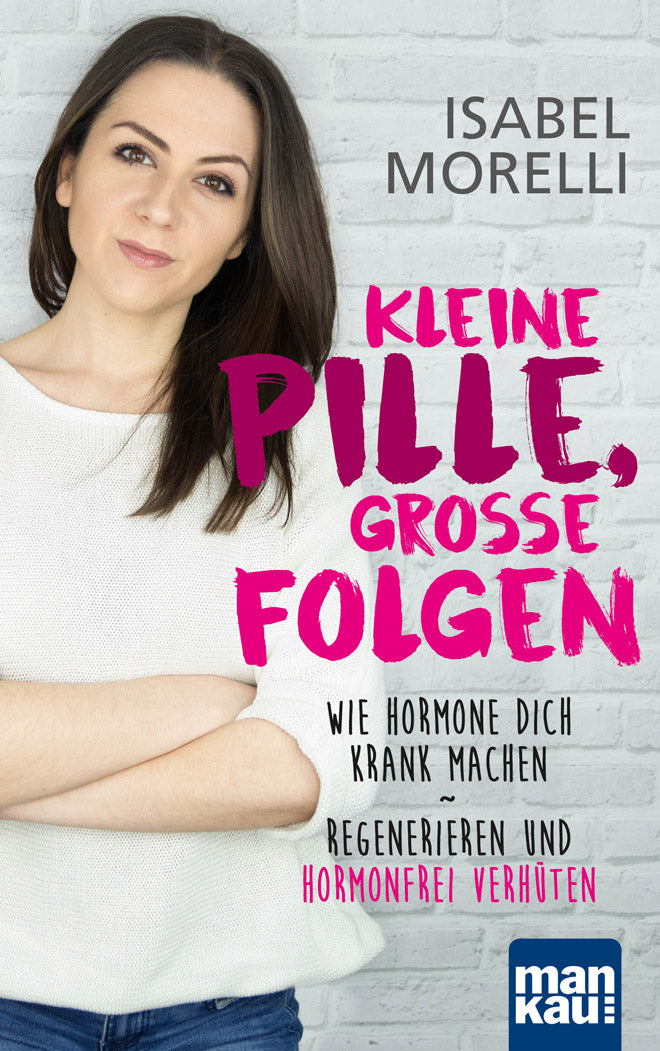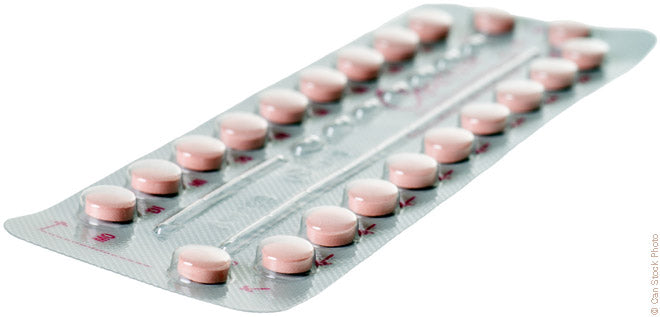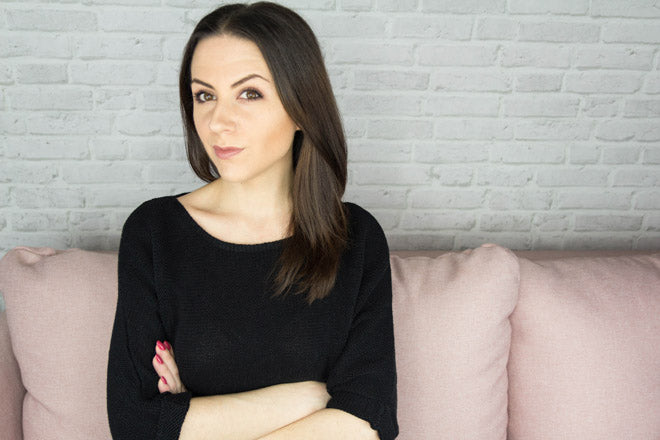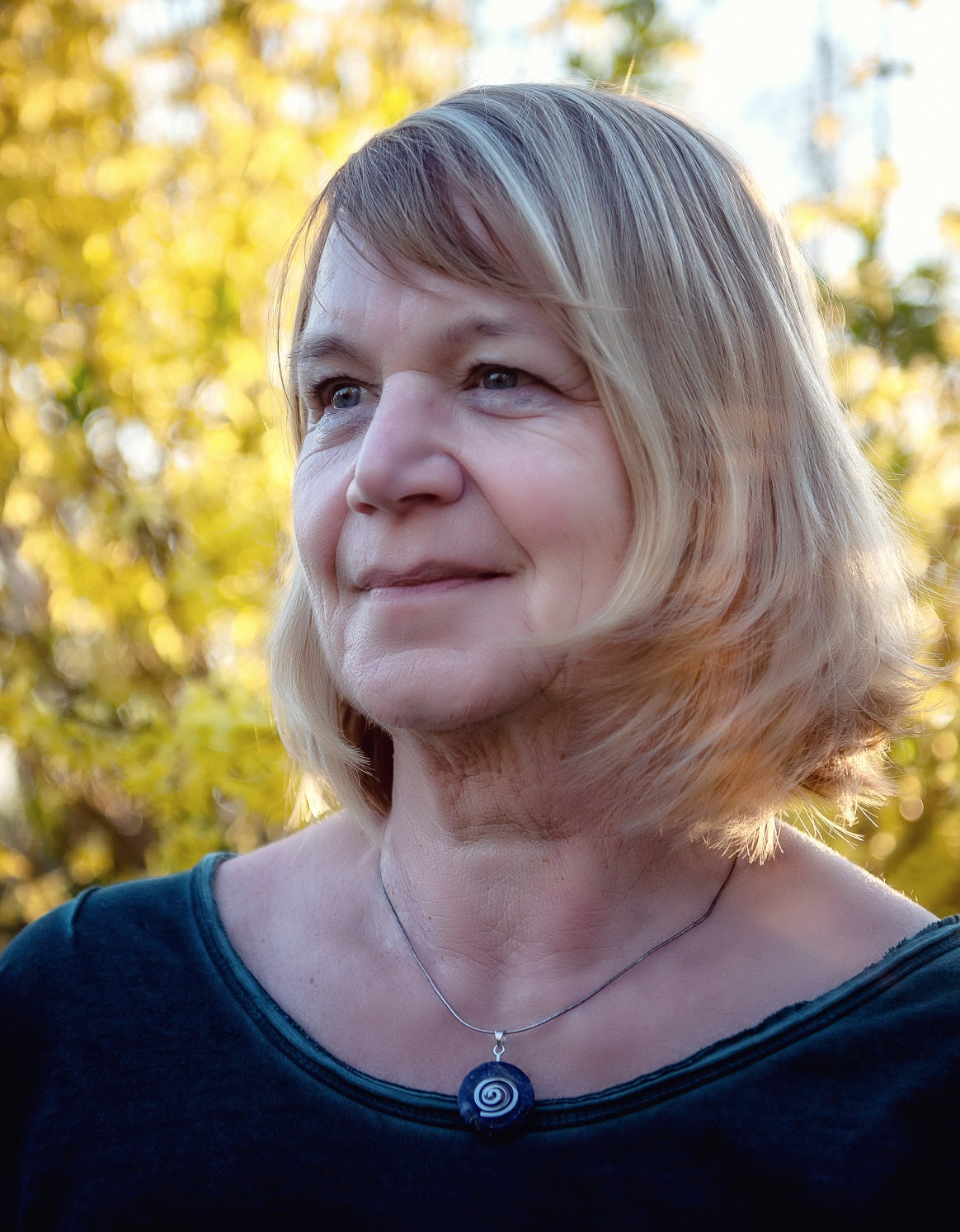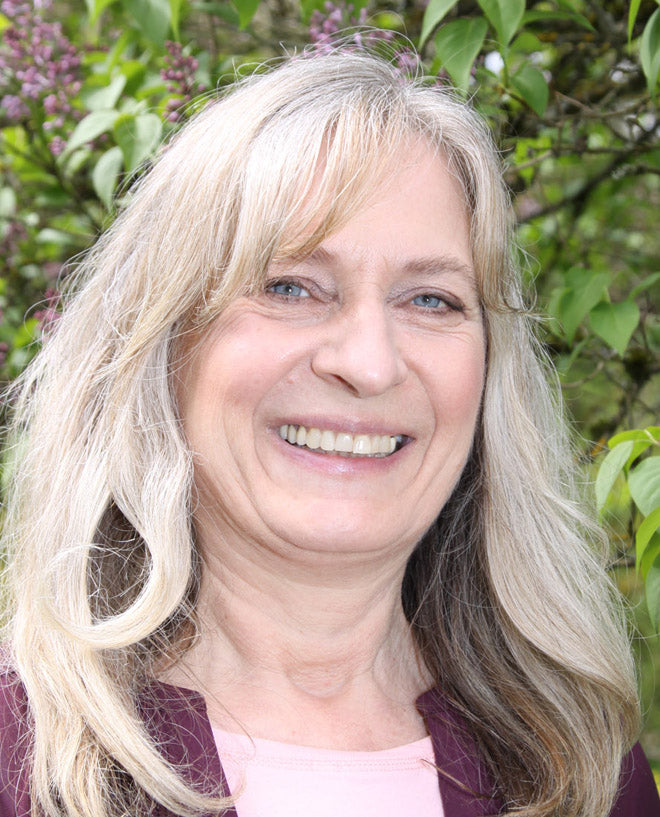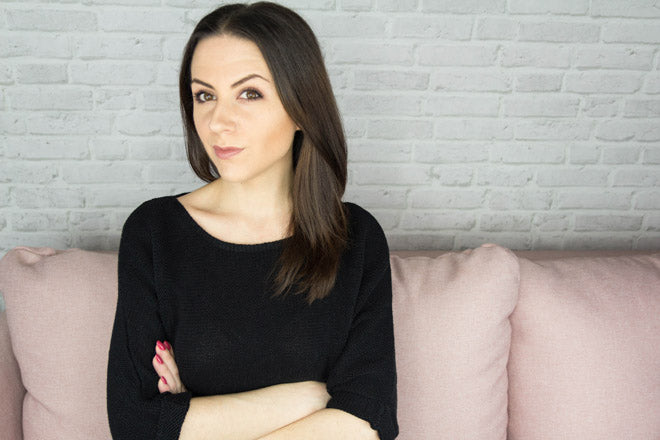
Interview with Isabel Morelli: “Thanks to the good alternatives, we are no longer dependent on hormonal contraception”
Interview with Isabel Morelli: “Thanks to the good alternatives, we are no longer dependent on hormonal contraception”
"Unfortunately, because very few women read the package insert, they often live for a long time with symptoms that they would never associate with the contraceptive pill." Through her work and her blog Generation-Pille.com , Isabel Morelli is confronted daily with the effects "that this one small tablet taken every day can have on a woman's life." A conversation with Isabel Morelli, herself affected and author of the book "Small pill, big consequences" .
The so-called “birth control pill” or “the pill” for short is the most controversial but also the most successful medication. What are the reasons for this?
Isabel Morelli: I think the explanation for its great success is very simple. The pill came onto the market at a time when women's own fertility was still a serious threat and there were no safe alternatives. Before the first oral contraceptives were introduced, people dealt with sexuality and contraception in a completely different way than they do today. They were taboo subjects. The world was conservative, illegitimate pregnancies were unthinkable and abortions were illegal. Women did inhumane things to secretly terminate pregnancies.
The conditions were ideal for bringing a medicinal solution to the market. Naturally, women welcomed it with great enthusiasm. The pill made the problems of women at the time disappear in the absence of other options. Since then, this form of contraception has been very well advertised. Other contraceptives that have been developed and researched over the years simply did not make it into the public eye. They were not as present, were not advertised or recommended as much, and to this day are not fully included in the specialist training of gynecologists. So the success of the contraceptive pill and of course the misconception that it is not possible to use synthetic hormones to prevent pregnancy safely remain. The target group is also being diligently expanded, for example by prescribing the pill as a lifestyle drug to young girls who do not use contraception but want to have beautiful skin and hair.
The controversial discussion always arises when the downsides of hormonal contraception come to light. Like all medications, oral contraceptives are not free of risks and side effects. Quite the opposite. Since they were introduced onto the market, the list of possible, sometimes dangerous and life-threatening symptoms in the package insert has become increasingly longer. So the question arises: do women still have to accept this in order to use safe contraception these days?
Since it was launched on the market almost 60 years ago, people have been warned about the risks and side effects of the pill. What are these and why have they not been brought under control?
Isabel Morelli: I think that the most well-known risks have become known to almost all women since the massive media criticism in 2015, such as the increased risk of thrombosis and pulmonary embolism. The impetus for the many negative headlines was the court case of a young woman who sued the pharmaceutical giant Bayer because of a pulmonary embolism that she suffered from taking the contraceptive pill.
The list of possible side effects of birth control pills is as long as it is varied. It seems that there is almost no complaint or physical change that cannot be caused by taking the pill. True to the motto "anything is possible, nothing is necessary", you read about neurological complaints such as dizziness, visual disturbances and lightheadedness as well as gynecological symptoms such as missed periods, intermenstrual bleeding or cysts. The more closely you look at a package insert, the more quickly you realize that almost every organ, almost every part of the body and even the psyche can be affected by potential side effects. Unfortunately, because very few women read the package insert, they often live for a very long time with complaints that they would never associate with the birth control pill.
Through my work, the blog and the community that has grown out of it, I am confronted daily with the enormous impact that this one small tablet taken daily can have on a woman's life. If I had to name the side effects that are most frequently reported to me, they would probably be the psychological ones. From loss of libido to mood swings to severe depression and panic attacks. What all those affected unfortunately have in common is that it took them a very long time to find the source of their symptoms.
Your personal and painful experience with the hormonal contraceptive has led to an intensive study of its history and mode of action, from which other sufferers can now also benefit. What have you experienced with the pill and what advice would you give to women who want to stop taking it?
Isabel Morelli: Like many women of my generation, I was prescribed the pill shortly after my first period. At 13, I was of course still a long way from thinking about contraception, but I wanted to do something about my painful periods. If you go to the gynecologist with this intention, you usually leave the practice with the first pill prescription after a short time. Eight years of taking these small, inconspicuous pills every day followed. During this time, I had to change the pill frequently, because one gave me bad spots, the next made me gain a few kilos, and the subsequent ones always had one or two side effects. At the age of 21, I decided to stop taking it. My story actually only begins when I stopped taking it. I had taken the pill so early that my body was never able to properly "learn" how a natural cycle works. So after I stopped taking it, I suddenly had various hormonal problems that were not taken seriously for many years or were only treated very superficially. From an underactive thyroid to adrenal dysfunction, amenorrhea, PCOS and post-menopausal hormone levels, I was spared nothing. This not only cost me a lot of money, but also countless doctor's appointments, treatment attempts, misdiagnoses and a lot of nerves to find my way back to a truly healthy state. Neither I nor my doctors had taken into account that taking the contraceptive pill so early and for so long had left a lot of scorched earth in my body.
Today, of course, I know what I should have considered back then, and that is exactly what helped me even five years after stopping taking it - the holistic view of the potential causes. It is no longer a secret that the pill has an enormous impact on the liver, intestines, thyroid, adrenal glands and vital substances, and this knowledge should be used. That is exactly what I would advise every woman who wants to stop taking the pill or who has already stopped taking it.
For as long as humans have existed, people have tried to prevent unwanted pregnancies. But hormonal contraception seems to be the most successful method. Is that really true? And what alternatives are there today?
Isabel Morelli: It may be that the pill was the safest method of contraception when it first came onto the market. Today, however, there are various hormone-free methods of contraception on the market that are at least as safe as the contraceptive pill, if not safer. In my opinion, there is so much choice these days that everyone can find the method that suits them. Unfortunately, the pill has become so well established over the years that many other methods have simply fallen by the wayside in public perception. Barrier methods such as condoms or diaphragms and also contraception using the symptothermal method depend very much on their users for their safety, but they are all very safe when used correctly. The copper variants such as the copper coil, chain or ball are also safer than the pill.
The often-quoted Pearl Index is just one method of calculation and depends on the data used to carry out the calculation. In fact, this index has not been used in scientific research into contraceptive methods for years. Nowadays, only method and user safety count.
The method safety proves the maximum possible safety of a contraceptive method. However, this is only possible if it is used 100% correctly throughout! No mistakes, no disruptive factors, no forgetting, no other medication, not even a cold - everything can reduce safety. The user safety proves the real safety in average everyday life. If you look at both, you have a good overview of how safe a method can be in theory and how it works in everyday life.
Can one method of contraception be recommended for all women or is it individually adapted and combined?
Isabel Morelli: Contraception is a very individual issue. Every woman should consider with her partner which contraception method is best. For some, the copper coil is a great method because they don't have to worry about anything for a few years after it has been inserted. For others, the idea of a foreign body in the uterus is rather uncomfortable. The same applies to natural contraception. There are many women who find it great to observe their cycle, get to know their body better and be fully responsible for their fertility, while others have absolutely no desire to take their temperature every day and observe their cervical mucus. So it's a question of type. In the end, the only thing that matters is that the woman and her partner feel comfortable and confident with the decision. If the contraceptive method makes you feel safe, it also has a positive effect on your sex life.
Most women are unaware of the dangers they are exposed to with hormonal contraception because they hardly pay any attention to their own bodies and especially to their cycles. What should you definitely know about it and how does the pill actually work?
Isabel Morelli: Hormones are the conductors of our body. Unfortunately, most women are not aware of the extent to which hormones influence physical and mental health. The pill shuts down the natural cycle, stops the interaction of our body's own hormones and replaces them with synthetic hormone substitutes. All the positive properties that female sex hormones have on our health and psyche are lost. Apart from the multitude of side effects that can be found in every patient information leaflet, it cannot be denied that an intervention in the menstrual cycle is always an intervention in the entire hormonal system. In addition, the liver and intestines can also be affected, and the vitamin and mineral balance can suffer. If you take all of this together, the price for supposedly safe contraception is simply too high. Especially today, thanks to the excellent alternatives, we are no longer dependent on hormonal contraception.
For many girls, puberty and adulthood are synonymous with taking the pill, which is seen as a lifestyle drug. What has led to this development and what do you consider to be genuine “education”?
Isabel Morelli: One of the main reasons for this is the lack of proper education and a lack of connection to one's own body among young girls and women. However, a lack of knowledge is not only a problem that affects women, but also teachers, parents, schools, counseling centers, men and sometimes even gynecologists. The problem begins in school with mixed classes during sex education classes, gaps in the associated curricula and a lack of time, which contributes to the fact that the topic of contraception and body knowledge is still underrepresented in schools.
Since gynecologists, especially those with health insurance, have neither the time nor the capacity for information and detailed discussions, the teenage consultations are not very helpful either. If these special consultations were used to take the girls by the hand and explain to them exactly what to expect physically during puberty, what changes and how the female cycle works, I would be a big fan. However, these appointments, which often take place shortly after the first period, unfortunately do not work like that in most cases. When the lack of knowledge, especially among young girls, is combined with the enormous pressure to look perfect, the pill seems very tempting. Especially since the various manufacturers also make every effort to highlight precisely these advantages of the medication in their communication.
In my opinion, the topic of "education" needs to be rethought at all levels. Starting with the curricula and the design of lessons, through to detailed information evenings for parents, really good contact points for women and girls of all ages, and educational consultations with gynecologists. We still have a lot of work to do and a lot of catching up to do, but I think we are on the right track.
Book tip:
Isabel Morelli: Small pill, big consequences. How hormones make you sick. Regenerate and use hormone-free contraception. Mankau Verlag 2018, paperback, 13.5 x 21.5 cm, 191 pages, €16.90 (D) / €17.40 (A), ISBN 978-3-86374-490-8.
Link recommendations:
More information about the book "Small pill, big consequences"
To the reading sample in PDF format
More about the author Isabel Morelli
To the Internet forum with Isabel Morelli
To the blog Generation-Pille.com
